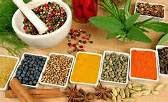The winter solstice has been known as a rebirth for thousands
of years and a time of celebration so I always give gratitude for this
beautiful time of the year. Each season has a purpose. We are rejuvenated in spring, relax and have
fun in the summer, replenish our energy in the fall and recharge our bodies in
the winter by resting and enjoying more indoor activities. Even my friends who live in warmer climates
say they tend to slow down in the “winter months.” Nothing is better than an old movie and a hot
bowl of soup on a Saturday afternoon when it’s cold, rainy or gray outside! However many people feel the opposite and the
shorter days and absence of light make them dread the winter.
Some suffer from Seasonal Affective Disorder
or SAD which is a form of depression that mostly occurs in the fall and winter
months when there is less sunlight. It can bring on feelings of depression,
anxiety or a general lack of interest in doing anything. It can be from other
causes as well so it’s important to talk to your doctor.
One of the ways to
combat SAD is to load your diet with nutrient rich foods that raise your serotonin
aka “the happy hormone” since lower levels have been shown to cause depression.
Here is a short
list of foods and tips that can help beat those winter blues:
- Beans such as chickpea, lentil, kidney, black beans and
split peas.
- Seeds such as pumpkin, sunflower, sesame and flax.
- Nuts such as almonds, walnuts, pecans, pistachios,
cashews and peanuts or peanut butter.
- Root vegetables such as squash, beets, sweet potatoes
and winter squashes.
- Also include leafy green vegetables such as kale and
spinach that provide b vitamins which also helps your mood.
- Replace white flour, bread and pasta with quinoa, brown
rice, buckwheat or millet.
- Be very mindful of how much sugar you are eating. It will give you a temporary high but
then depletes your serotonin.
- Adequate vitamin D levels are also important and since
lack of sunlight can affect vitamin D levels, you may want to take some
good quality cod liver oil during the winter months.
It’s hard to talk
about healthy nutrition without including exercise. Food has a big impact on
our mood but so does exercise so it’s important to keep moving. Engage in something
fun, and even new, like dancing, yoga or bowling. You can even join the gym for the winter
months to keep moving. My husband and I
sometimes walk in the mall before the stores open.
During the
holidays it can be challenging to say no to all the great treats
but overindulging is not good for mind or body.
Have a healthy snack before you go to a party so you are not so hungry
or cut some calories each day of the week leading up to the party. That doesn’t mean you can go crazy at the
party but it won’t be tragic if you have a little extra. I love good quality dark chocolate, and will
have it, but only one square. Even if I
want more I wait about fifteen minutes and the desire goes away. It’s a conscious effort but it’s worth it. When eating healthy becomes a part of your
life you won’t want or need to over eat.
It becomes easier to say no to unhealthy food and snacks because your
body no longer craves them.
During these cold winter months try to get together with
people you love and share meals. Having
a potluck is so much fun without all the work for one person. In addition, you get to taste different cuisines
and ethnic foods. Try a vegetarian or vegan pot luck or have everyone come over
and cook together. For desserts see who can come up with the healthiest, tastiest
dessert!
I love a good stew in the winter so I am sharing my recipe
below. It’s healthy,
delicious and won’t pack on the pounds. I always suggest all ingredients be
organic but if that is not possible try to buy local or from the farmers
market.
Warming Vegetarian Winter Stew
2 tablespoons coconut oil
½ teaspoon turmeric
(Curcuma long)
½ teaspoon ground cumin (Cuminum cyminum)
½ cup of red onions (Allium cepa)
1 small butternut squash diced
2 medium carrots diced
7 shitake mushrooms without stems
cubed (Lentinula edodes)
6 ounce can of tomato paste
1-2 cups broth (I like mushroom
or vegetable)
1 bunch green/red swiss chard
chopped fine
4 cloves garlic chopped (Allium
sativum)
1 cup chick peas
1 cup red kidney beans
1 ½ cup of peas (canned or
frozen)
You can serve over brown rice or
quinoa for a heartier stew
Your favorite cheese grated
(optional)
In a large deep pot, on low heat,
add the coconut oil, turmeric and cumin and sauté the spices for about a
minute. Then add the onions and sauté
for another minute until they are transparent.
Raise the heat to medium and add the carrots, squash and mushrooms and sauté
for about 5 minutes. Add the small can
of tomato paste with the broth. Start
with one cup and add more as needed. I
like my stew thicker so I add less.
Cover and simmer on low for 25 minutes.
Check to make sure the squash and carrot are soft. Then add the garlic, swiss chard, chick peas,
kidney beans and peas and continue to cook another 5 minutes (even if the peas
are frozen). You can serve this over brown rice or quinoa and top with your
favorite cheese (which is optional).
.









